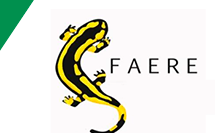Revealed and stated preference techniques are widely used to assess individuals' non-market preferences, in particular in cost benefit analyses (CBA). However, individuals have first to satisfy subsistence needs through market good consumption, which affects their budget constraint. The impact of subsistence needs on the preference elicitation for and the pricing of a non-market good or service have not been extensively explored. In this paper, we first provide a methodological framework showing how both depend on the level of subsistence needs and income. We then quantify the importance of these impacts by comparing this framework with the standard framework, from a theoretical, a numerical and an empirical perspective. In particular, we consider the case of individual preferences for the non-market good that differ according to the level of income. Our findings confirm the relevance of accounting for budget constraints when relying on non-market valuation methods, especially in CBA.
|
On the plutocracy of cost-benefit analysis
1 : Aix Marseille Université
Aix Marseille School of Economics, Aix Marseille Univ
2 : Aix-Marseille School of Economics
(AMSE)
-
Site web
Ecole Centrale Marseille (ECM), Ecole des Hautes Etudes en Sciences Sociales (EHESS), Centre national de la recherche scientifique (CNRS)
GREQAM, Centre de la Charité, 2 rue de la Charité, 13236 Marseille Cedex 02 -
France
|




